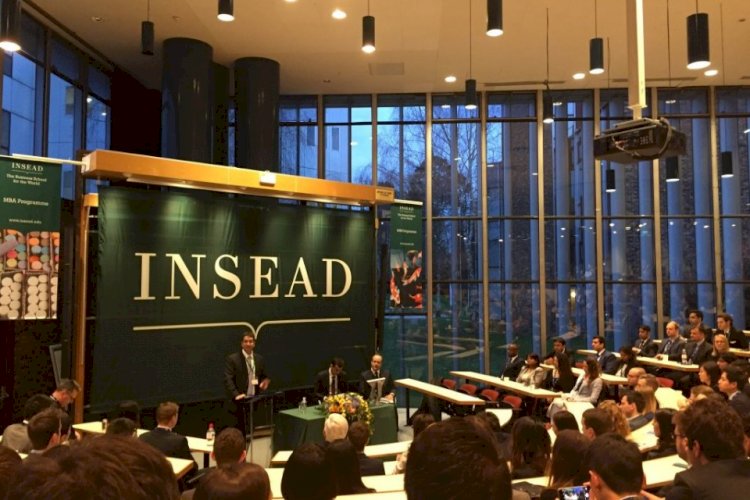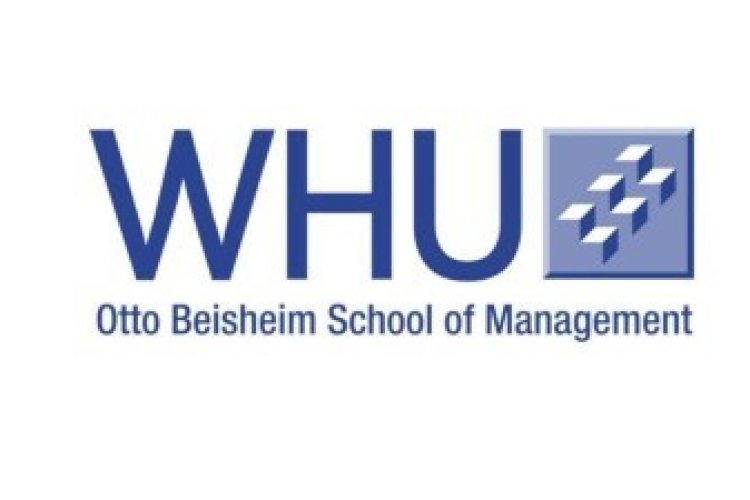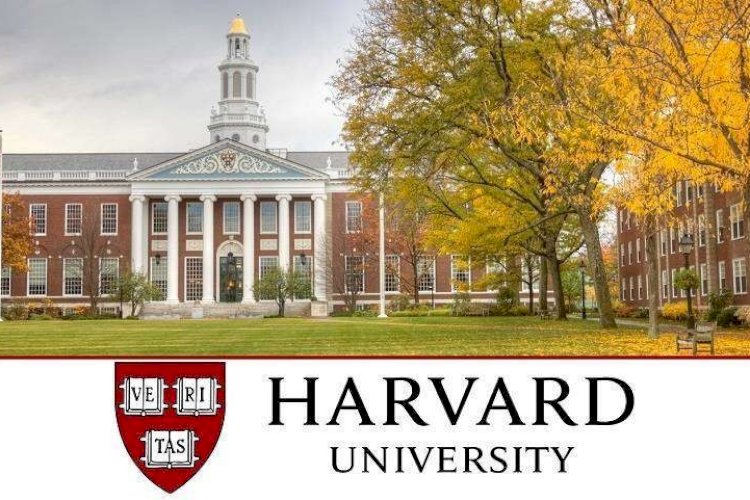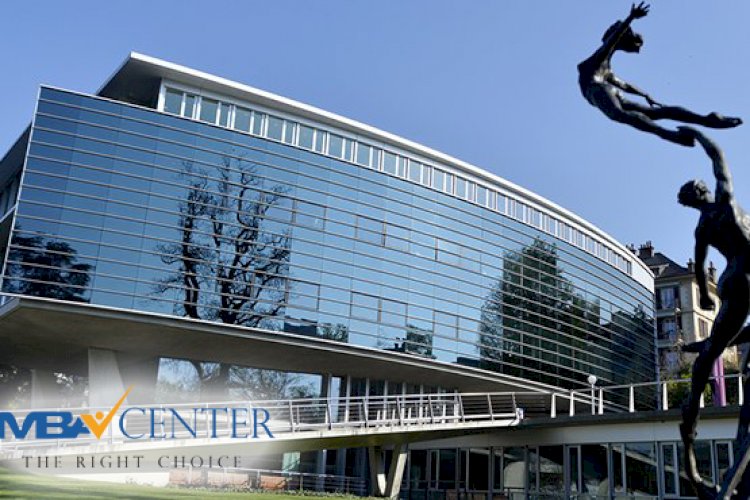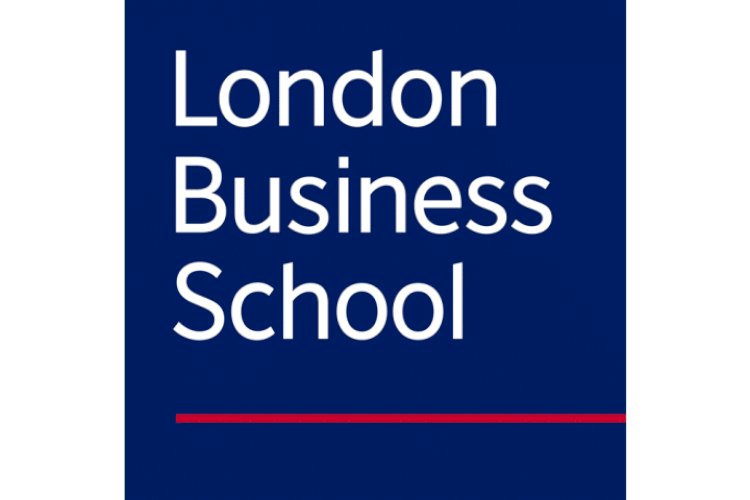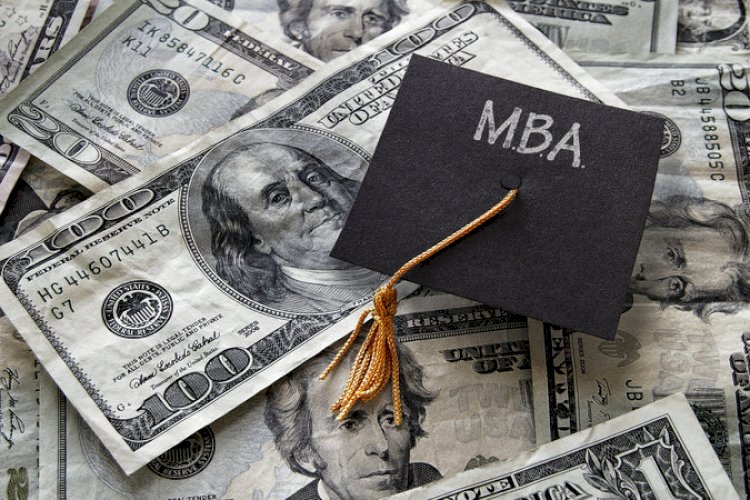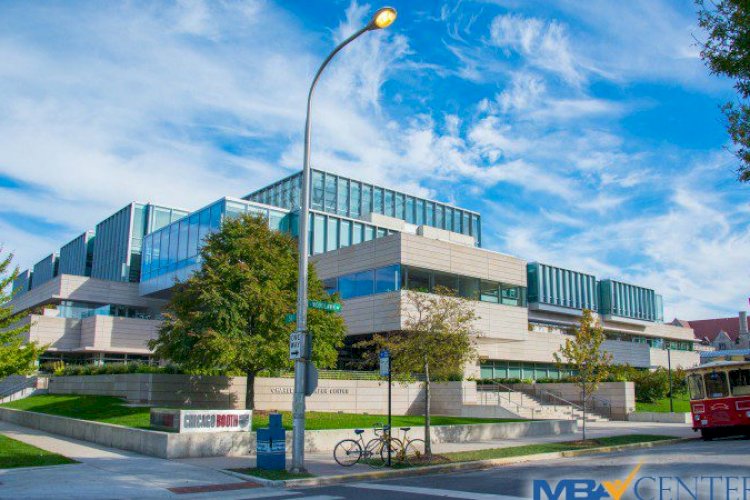
The Best MBAs in Finance in the US, Europe and Asia
If you are looking for the best Business Schools for an MBA in Finance then these names should be on your list. They will help you to hit the ground running if you are interested in top jobs in Finance.
Chicago Booth Graduate School of Business
Percentage of students in finance industry: 36.2%
Top Employers: Citigroup.Inc, JP Morgan Chase & Co., Credit Suisse
Chicago Booth has the highest percentage of median salaries, and bonuses which are $125,000 and $40,000 respectively. The maximum salary offered to a student was $ 250,000. This B-School is renowned for its Nobel prize-winning faculty like Eugene Fama and Gary Becker.
The Wharton School of Business
Percentage of students in finance industry: 37%
Top Employers: Goldman Sachs & Co, CITI, Bank of America Merrill Lynch.The Wharton School of Business, Pennsylvania offers a two-year program that has a wide range of elective subjects for finance. The median salary of students choosing careers in the Finance Industry is US $130,000. About 13% of students chose Investment Banking as their career of choice while another 11.4% students elected to choose careers in Private Equity in 2019.
The Stanford Graduate School of Business
Percentage of students in finance industry: 33%
Top Employers: American Express, HSBC, Goldman Sachs
Stanford’s MBA program was adjudged as the world’s third-best by the Financial Times Global MBA Rankings 2020. Students working in finance are earning an average salary of $174,386.16. The median salary and bonus offered were $ 157,500 and $ 35,000 respectively. The highest starting salary offered to a graduate was an astounding $300,000.
Nobel Prize-winning faculty, Scholes and Sharpe are among the faculty teaching at Stanford.
Oxford Saïd Business School
Percentage of students in finance industry: 30.8%
Top Employers: JP Morgan, KPMG, VISA
A total of thirty percent of Saïd’s students take jobs in the finance sector. The B-School has very hands-on elective courses that offer students a chance to explore international business structures, with past electives including Fintech. These electives offer students a chance to explore key finance concepts in an immersive manner. The Finance lab is another intensive workshop experience that prepares students for roles in investment banking, private equity, and asset management.
NYU Stern School of Business
Percentage of students in finance industry: 30.6%
Top Employers: Barclays Capital Group, Capital One, Citi, JP Morgan Chase, Goldman Sachs & Co
With its location in New York City and proximity to Wall Street, the NYU Stern School of Business sent more than one-third of its class into careers in the finance industry. Stern graduates go on to work in financial powerhouses throughout New York City and across the country. The median salary for students choosing careers in finance is $ 125,000 with the highest offered starting salary of $170,000, and the average bonus amounting to $ 46,000.
This B-School has the largest academic department of over seventy full-time faculties. Nobel prize-winning names such as Robert Engle, Nouriel Roubini, Aswath Damodaran and Edward Altman are a part of the finance faculty here.
Columbia Business School
Percentage of students in finance industry: 30%
Top Employers: Barclays Capital Group, Capital One, Citi, JP Morgan Chase, Goldman Sachs & Co
With a third of its class recruited for careers in finance, median salaries and bonuses for CBS started at $127,500 and $30,000 respectively. The maximum salary offered to a graduate in finance was a stupendous $ 305,000.
Post the 2008 financial crisis, Columbia has consciously diversified its recruiting efforts. As a result, Consulting has overtaken Finance as the largest recruiter of Columbia graduates. CBS is known to participate in annual local and national competitions such as the Venture Capital Investment Competition which the school won in 2014.
Harvard Business School
Percentage of students in finance industry: 29%
Top Employers: include American Express, Bank of America Merrill Lynch, Credit Suisse AG, Fidelity Investments, Federal Reserve Bank of New York, and Goldman Sachs Group.
Even though HBS is known as a general management-focused program, 29% of its class choose careers in the finance industry. With a median starting salary and a signing bonus of $ 150,000 and $ 40,000 respectively, 15% of students in 2018 chose careers in Private Equity. Apart from the obvious brand value and status, HBS offers 18 Elective Curriculum (EC) and 2 Required Curriculum (RC) classes for a total of 20 courses in the Finance Unit.
HBS also offers diverse electives such as Investing in Emerging Markets, Creating Value through Corporate Restructuring, and Financial Management of Smaller Firms.
Cornell Johnson
Percentage of students in finance industry: 29%
Top Employers: Accenture, Amazon, Deloitte, McKinsey & Company, RBC
In 2018, 29% of Cornell Johnson graduates chose careers in the finance industry with an average starting salary and sign-on bonus of $ 133,126 and $ 46,688 respectively. This brings the total compensation up to almost $ 180,000. Cornell Johnson introduced an immersion strategic semester in operations, in 1990. This empowered students to combine classroom learning with practical experience through Kaizen projects and factory tours. Now, Cornell Johnson offers immersion-based performance learning in eight functional areas. Immersions usually take place in the second semester of the first year of the program. This timing of the immersion helps you stimulate a basis for internship recruiting in the summer.
London Business School
Percentage of students in finance industry: 26%
Top Employers: Goldman Sachs, Credit Suisse, Partners Group
Approximately one-third of graduates from the London Business School’s MBA program get recruited to work in finance. The school lets students explore the heart of London, which is still the financial capital of the UK.
LBS also boasts ties to major global companies. As a matter of fact, 28% of the MBA class of 2020 landed summer internships in finance with Goldman Sachs hiring eight students from the program.
The two-year program offers a range of specific elective choices with options in Finance, Private Equity and Economics to ensure that students gain detailed knowledge that they need for the future.
CEIBS
Percentage of students in finance industry: 25%
Top Employers: Bank of China Investment Management, Legend Capital, PwC
The China European International Business School (CEIBS) benefits from its location in Shanghai, a city that aims to become one of the world’s largest financial hubs in the next few years.
24.7% of MBA graduates from the CEIBS class of 2019 went on to work in finance, with just over 20% of all graduates working specifically in the financial services industry.
Add to this the fact that 62.2% of students stay in Shanghai after graduating: you can see that the finance industry in Shanghai is a real draw.
The MBA puts a real focus on doing business in China, a real necessity if you’re aiming for the Chinese finance industry. As well as this, students can choose to concentrate in Finance in their second year, pursuing electives in Investment, Fund Management, and East Asian Financial Institutions among others.
Hong Kong University of Science and Technology (HKUST)
Percentage of students in finance industry: 22%
Top Employers: Citibank, Barclays Capital, JP Morgan
The MBA at HKUST has sat in the top 20 of the Financial Times’ Global MBA ranking for thirteen years in a row. It is impressive to see that 22% of students from each batch go on to work in finance. The school is located in Hong Kong, the biggest financial center in the Asia Pacific Region providing the utmost benefit to its students.
The curriculum also flaunts electives in Macroeconomics and Financial Modeling, as well as a tailored curriculum course in Finance.
Georgetown McDonough
Percentage of students in finance industry: 28%
Top Employers: Bain & Company, BCG, Citi, Corning
Ranked number ten for Finance by Business Insider in 2018, the McDonough School of Business sent 21.7% of its 2019 class into careers in consulting. The average salary for students who chose careers in finance is $118,430. Moreover, 98% of students who were looking for employment received at least one offer within three months of graduation.
The school organizes a Financial Markets Quality Conference each year. It features panel discussions with leading experts. Previous keynote speakers at the events include the CEO of JP Morgan Asset & Wealth Management, President and CEO of Nasdaq, the CEO of INFRA, and the commissioner of the U.S. Securities and Exchange Commission.
Frankfurt School of Finance and Management
Percentage of students in finance industry: 20%
Top Employers: KPMG, Banco Santander, Allianz
Frankfurt School of Finance and Management advertises itself as one of the top schools in Germany for finance. General management courses are taught alongside modules in Corporate Finance, Financial Management, and the Global Economy, on the twelve-month intensive program. The specific Finance curriculum course allows students to dive into Capital Markets, Green Finance and more.
20% of Frankfurt MBA graduates go on to work in finance, with popular choices being banking and fintech, attracting 16% and 7% of graduates respectively.
Dartmouth Tuck School of Business
Percentage of students in finance industry: 20%
Top Employers: Bank of America Merrill Lynch, Credit Suisse, J.P. Morgan, and Vanguard
The Tuck School of Business is one of the oldest and the first business schools to offer a master’s degree in business. In 2018, Tuck graduates got a median salary and bonus of $ 125,000 and $ 46,250 respectively. The highest reported salary was an amazing $ 215,000 offered to a graduate going into the Private Equity and Venture Capital space.
 MBA Center Global
MBA Center Global 







